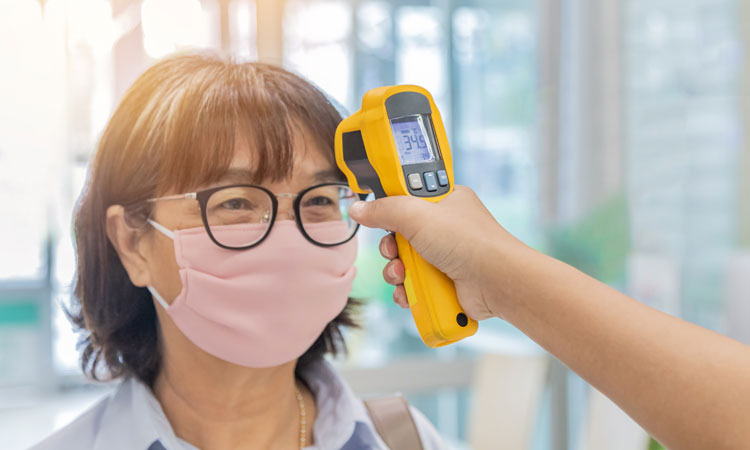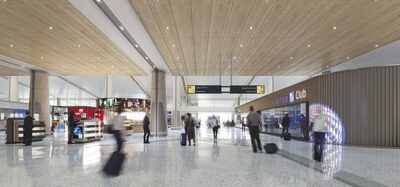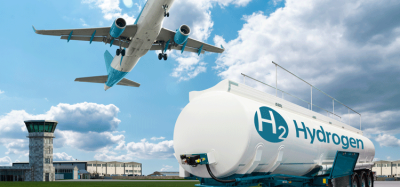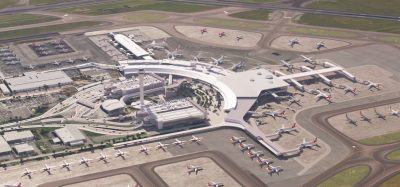IATA outlines a layered approach to biosecurity for re-starting air traffic
- Like
- Digg
- Del
- Tumblr
- VKontakte
- Buffer
- Love This
- Odnoklassniki
- Meneame
- Blogger
- Amazon
- Yahoo Mail
- Gmail
- AOL
- Newsvine
- HackerNews
- Evernote
- MySpace
- Mail.ru
- Viadeo
- Line
- Comments
- Yummly
- SMS
- Viber
- Telegram
- Subscribe
- Skype
- Facebook Messenger
- Kakao
- LiveJournal
- Yammer
- Edgar
- Fintel
- Mix
- Instapaper
- Copy Link
Posted: 20 May 2020 | International Airport Review | No comments yet
The International Air Transport Association (IATA) revealed details of its proposed temporary layered approach to biosecurity for re-starting passenger flights amid the COVID-19 crisis.


IATA has published ‘Biosecurity for Air Transport: A Roadmap for Restarting Aviation’, outlining its proposal for a layering of temporary biosecurity measures.
The roadmap aims to provide the confidence that governments will need to enable the re-opening of borders to passenger travel; and the confidence that travellers will need to return to flying.
“There is no single measure that will reduce risk and enable a safe re-start of flying. But layering measures that are globally implemented and mutually recognised by governments can achieve the needed outcome. A layered approach has worked with safety and with security, it’s the way forward for biosecurity as well,” said Alexandre de Juniac, IATA’s Director General and CEO.
IATA foresees the need for governments to collect passenger data in advance of travel, including health information, which should be accomplished using well-tested channels such as those used for eVisa or electronic travel authorisation programmes.
At the departure airport, several layers of protective measures are required:
- Access to the terminal building should be restricted to staff and travellers (with exceptions being made for those accompanying passengers with reduced mobility or unaccompanied minors)
- Temperature screening by trained government staff at entry points to the terminal building
- Physical distancing through all passenger processes, including queue management
- Use of face coverings for passengers and masks for staff in line with local regulations
- Self-service options for check in used by passengers as much as possible to reduce contact points and queues
- Boarding should be made as efficient as possible with re-designed gate areas, congestion-reducing boarding priorities and hand luggage limitations.
- Cleaning and sanitisation of high touch areas in line with local regulations.
At the arrival airport:
- Temperature screening by trained government staff if required by authorities
- Automated procedures for customs and border control including use of mobile applications and biometric technologies
- Accelerated processing and baggage reclaim to enable social distancing by reducing congestion and queuing
- Health declarations and robust contact tracing are expected to be undertaken by governments to reduce the risk of imported chains of transmission.
IATA expressed hope in two areas which could be ‘game-changers’ in facilitating efficient travel until a vaccine is found:
- COVID-19 testing: Testing at the start of the travel process would create a ‘sterile’ travel environment that would reassure travellers and governments
- Immunity passports: The development of immunity passports could segregate no-risk travellers, at a time when these are backed by medical science and recognised by governments.
The mutual recognition of globally agreed measures is critical for the resumption of international travel.
“The roadmap is the industry’s high-level thinking on safely re-starting aviation. Timing is critical. Governments understand the importance of aviation to the social and economic recovery of their countries and many are planning a phased re-opening of borders in the coming months. We have a short time to reach agreement on the initial standards to support safely reconnecting the world and to firmly establish that global standards are essential to success. This will change as technology and medical science advances. The vital element is coordination. If we don’t take these first steps in a harmonised way, we will spend many painful years recovering ground that should not have been lost,” said de Juniac.
Related topics
Airport crisis management, COVID-19, Regulation and Legislation, Safety, Security, Terminal operations

















